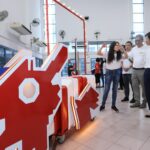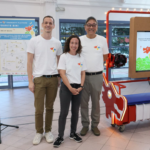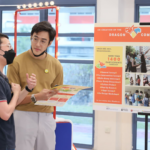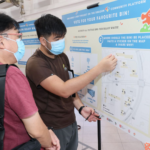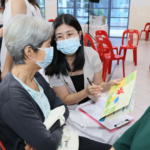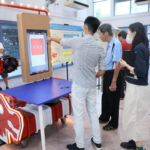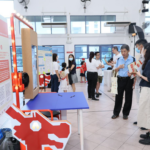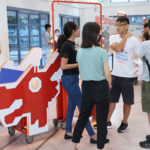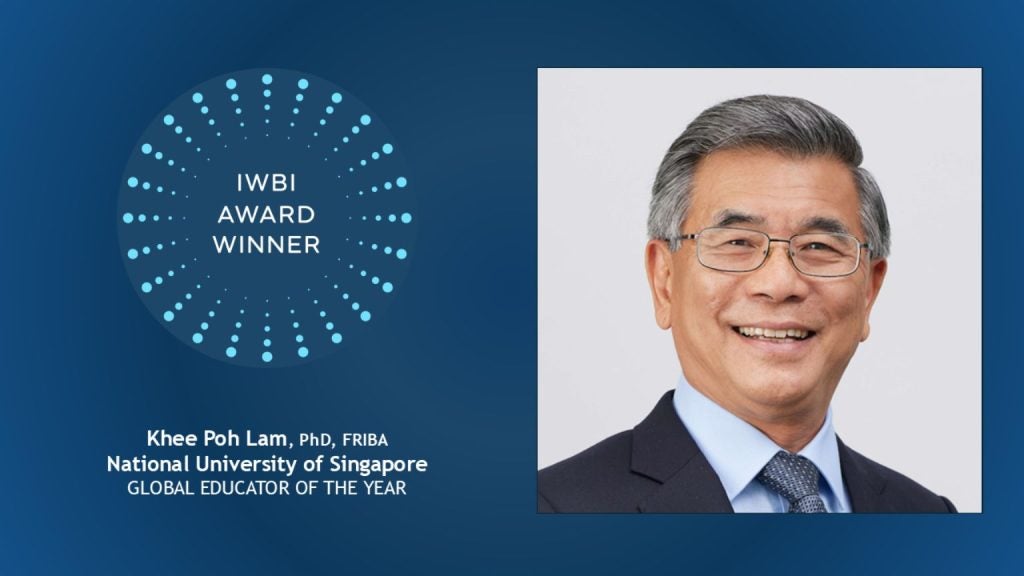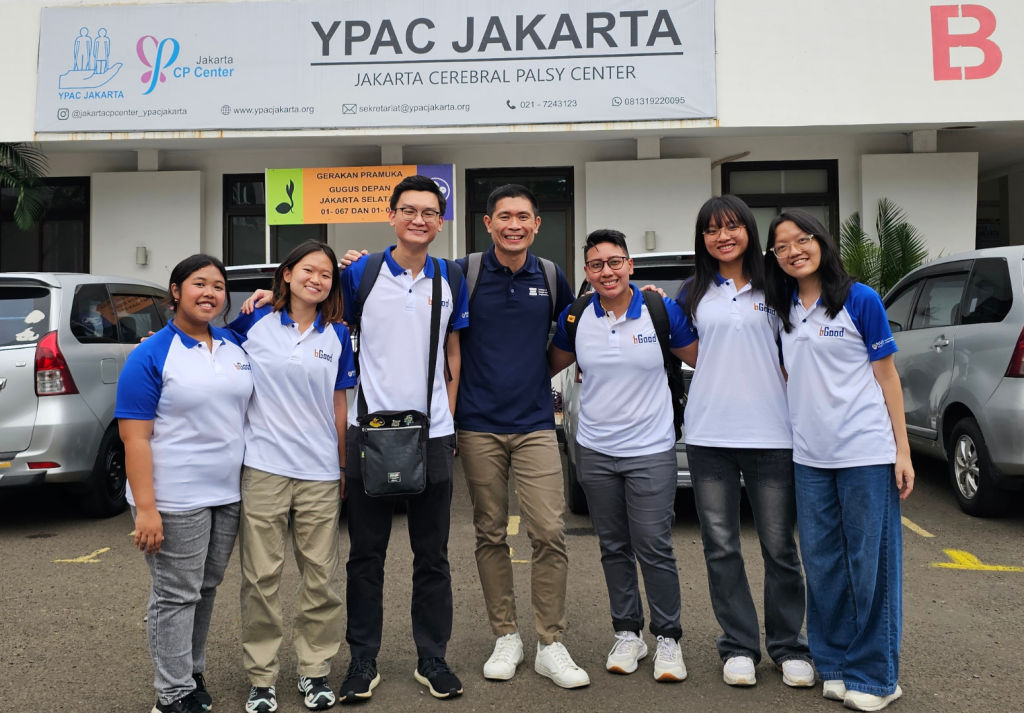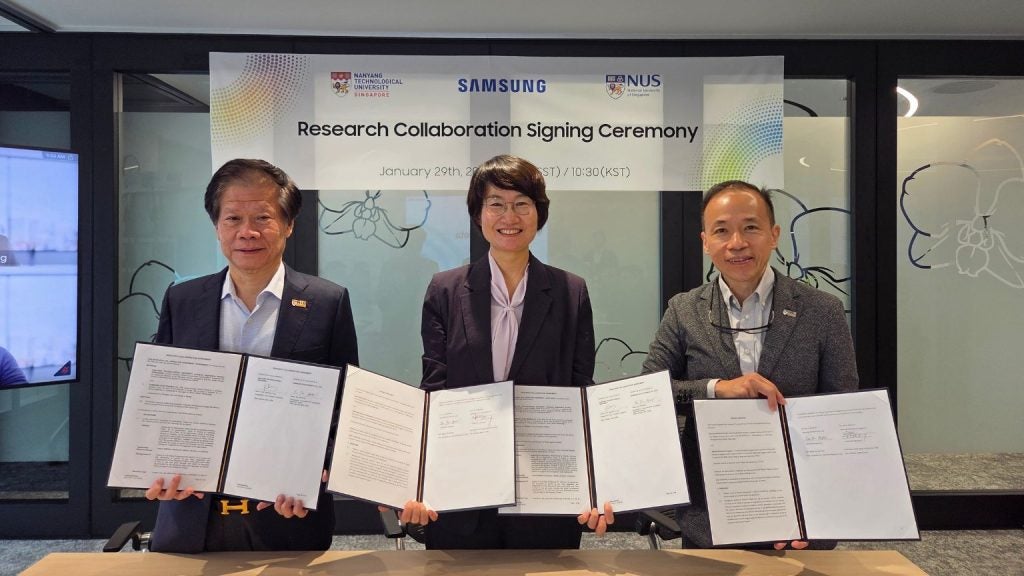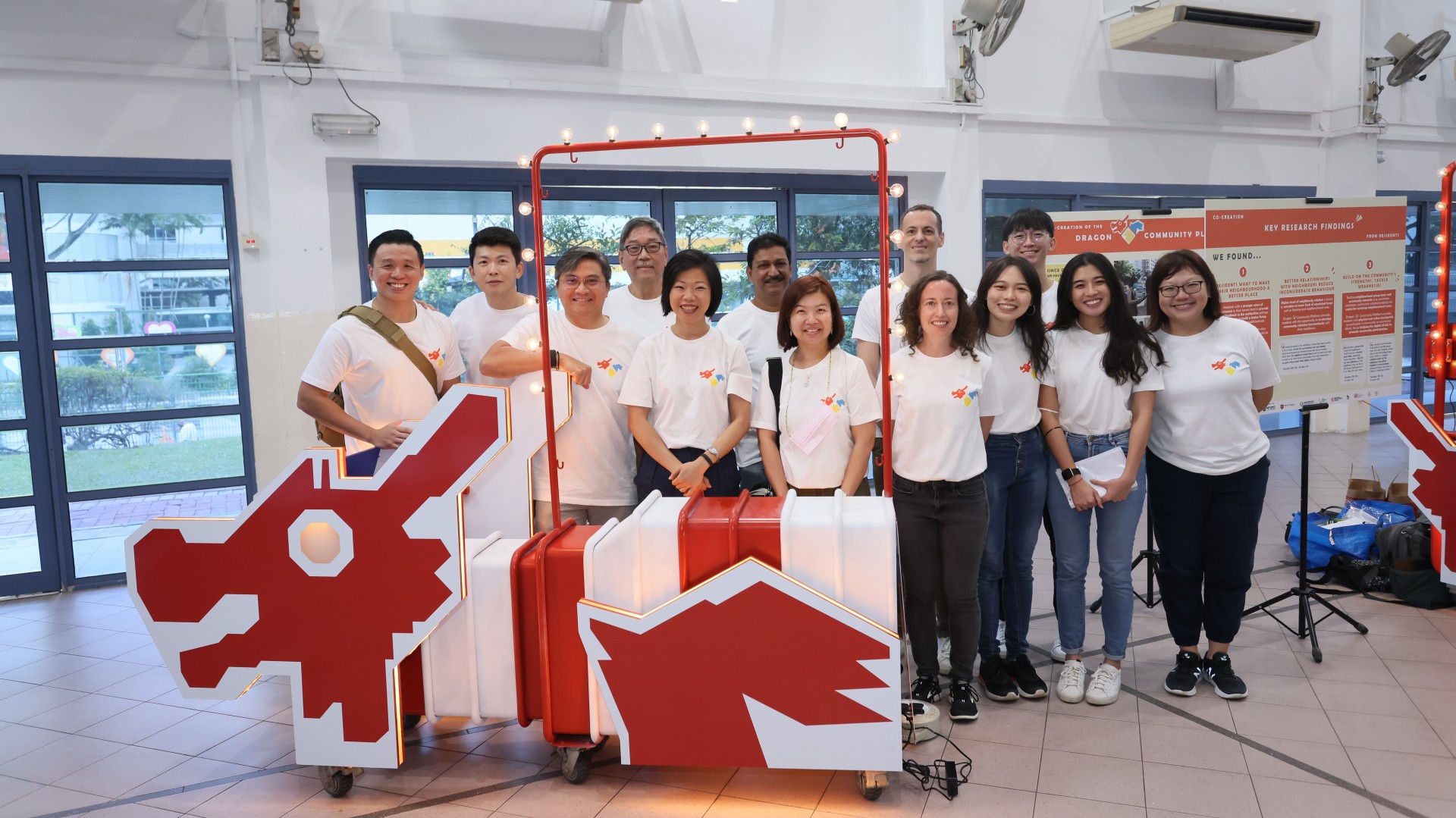
Meet the Dragon Carts, part of an interdisciplinary collaboration jointly led by the CDE's Centre for Sustainable Asian Cities (CSAC) to empower local communities to co-create solutions to neighbourhood issues.
The carts made their debut at a recent event marking the launch of a pilot community project as part of the new Dragon Heart Community Platform in Toa Payoh East.
Designed and developed by researchers at CSAC in collaboration with community residents, the brightly-coloured Dragon Carts are a central component of the platform which aims to support local communities to resolve municipal issues, champion their own neighbourhood projects, and build a better living environment.
Comprising physical and online touchpoints, the Dragon Heart Platform takes an integrated approach to enhance and simplify the solutions process from ideation to implementation, enabling residents to bring community-led solutions to reality.
Gallery: See photos from the Dragon Heart pilot launch event at Toa Payoh:
The piloting of the platform in Toa Payoh is part of an ongoing research collaboration between CSAC and the Municipal Services Office, as well as several other agencies, on ways to foster positive social norms and values and build stronger neighbourhood bonds in Singapore's high-rise and high-density housing environments.
The Principal Investigator behind the project is Associate Professor Cho Im Sik from CSAC and the Dept of Architecture at CDE.
Channels for discussion
Jointly developed with researchers from Yale-NUS College, The Dragon Heart Platform has three main components, designed to give communities the resources and channels for discussion:
- Dragon Idea Bank - a website (https://www.dragonheartcommunityplatform.com) with resources and ideas to address neighbourhood issues;
- Dragon Chat - a moderated WhatsApp chat group, allowing residents to collect feedback, contribute ideas and coordinate meetups;
- and Dragon Carts - mobile physical carts located in the neigbourhood, equipped with desktops, chairs and LED screens.
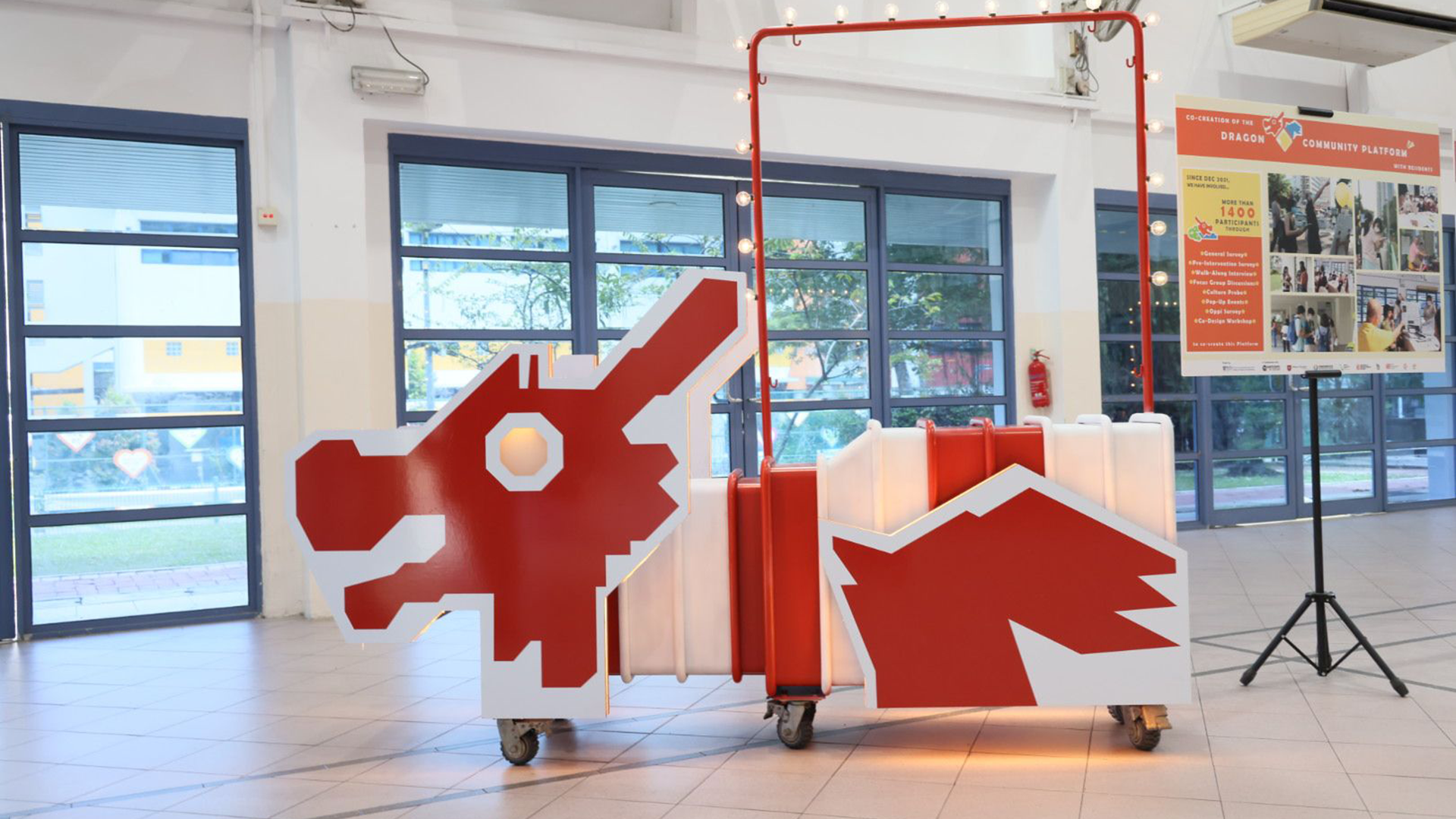
As the most visible part of the platform, the Dragon Carts are designed to be placed in areas used for group meetings, gather offline feedback from the community and bridge the divide between the digital components of the community platform and the physical neighbourhood.
Specially developed for community use, the portable carts - each with their own power supply - can be used individually or can come together in different formations for different occasions.
The development of the platform follows a year of community consultations in which NUS researchers engaged with over 1,400 participants to understand the issues and challenges residents face, identify strengths and gaps, and to co-design the intervention and pilot project for residents to lead.
The platform's name "Dragon Heart" was chosen by members of the Toa Payoh East Zone 6 RN and the logo reflects the iconic dragon playground in Toa Payoh.
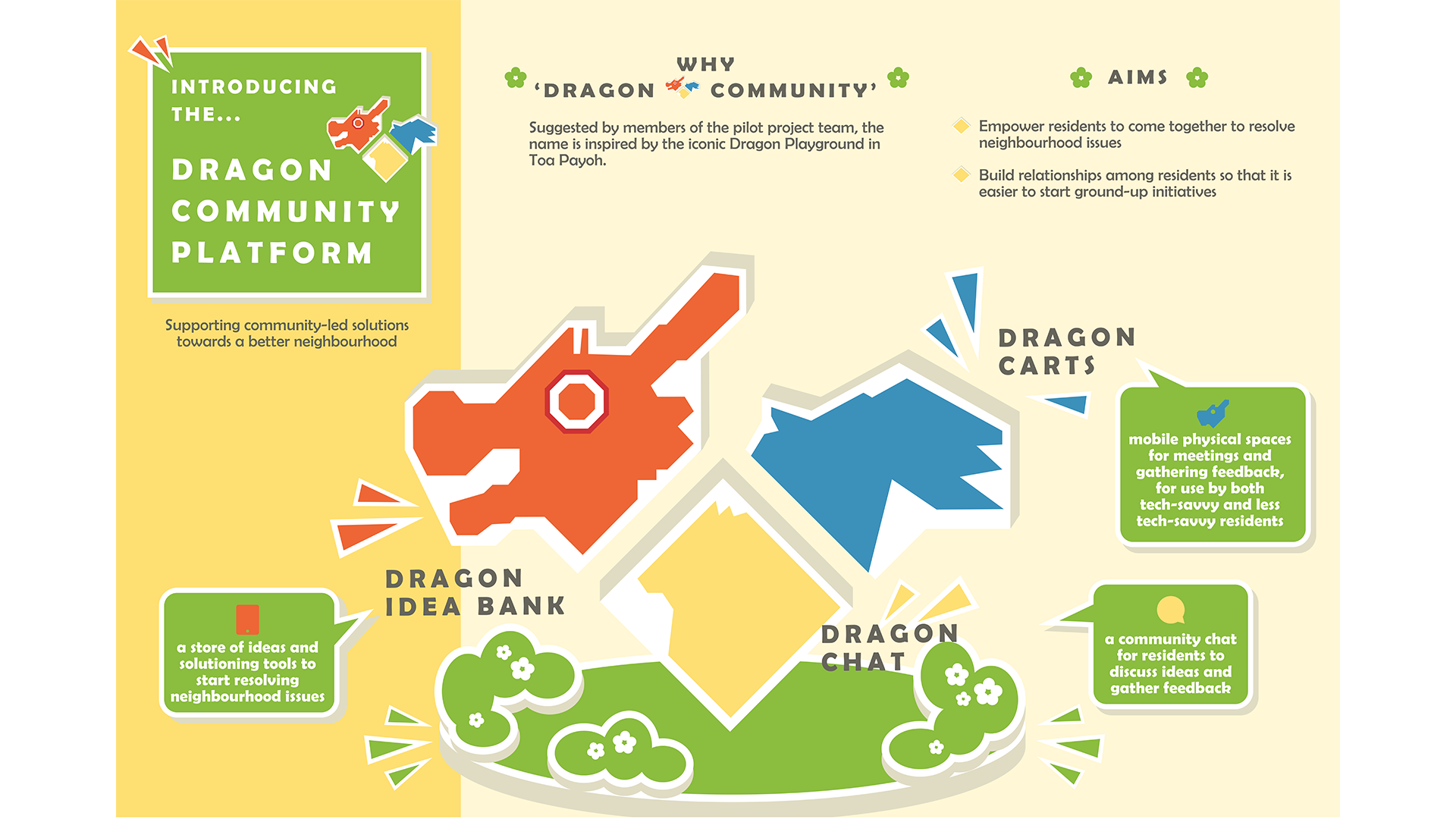
For the pilot project, Toa Payoh residents will be co-developing solutions to tackle the inappropriate disposal of bulky waste - a problem that the research has identified as a key concern of the neighbourhood.
Singapore Senior Minister of State for National Development, Ms Sim Ann, who was Guest of Honour at the launch of the pilot on November 26, said: "This study can potentially help us unlock more contributions and ideas from the community for a better living environment. I thank Toa Payoh East's residents for gamely taking on this pilot, which is part of the Forward SG exercise. I hope the findings from this study can help us start similar initiatives across Singapore."
Based on their study so far, the researchers leading the Dragon Heart project have identified three key interim findings:
|
Community-led solutions
A key thrust under the Forward Singapore exercise has been to empower Singaporeans to take a greater stake in proactively shaping their living environment, including addressing municipal issues on the ground.
The research collaboration, which is supported by the Ministry of Education (MOE), the Housing & Development Board (HDB), the National Parks Board (NParks), the National Environment Agency (NEA) and the Urban Redevelopment Authority (URA), seeks to understand the perceptions of residents on the role of the community in addressing municipal issues and how the Government can better engage residents to foster positive social norms and facilitate community-led solutions to municipal issues.
Assoc Prof Cho, the Principal Investigator of the research project, said: "This research takes a holistic approach to understanding the background and factors involved in activating community participation in municipal issues, which have not been studied in a local context. Guided by our findings in the earlier phase of the research, we collaborated with the community to develop this platform to empower residents to resolve municipal issues together. The pilot project serves as a starting point for residents to work together to improve their living environment, and such efforts could help to foster positive social practices in the long run."
Mr Saktiandi Supaat, Advisor to Bishan-Toa Payoh Grassroots Organisations, said: "We are happy to be involved in such a meaningful project. I am also very heartened by the enthusiasm and strong participation from our residents in Toa Payoh East. Their desire to work together collectively signifies the positive neighbourly ties that we have built over the years and share in our Toa Payoh East community."



